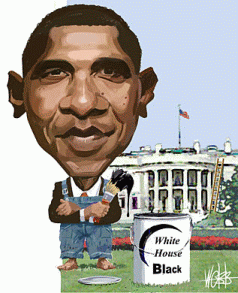
[The
New Zealand Herald, New Zealand]
NRC Handelsblad, The Netherlands
U.S. Primary System
Is 'Unfair'; and Has
'Significant Flaws' …
"The U.S. Primaries are
just vulgar mud fights with rules so complicated that they could have been
invented by American football. They are all about campaign financiers,
advertisers, media of all stripes, advisers, volunteers, and lobbyists who try
to push candidates or squash them."
EDITORIAL
Translated By
Jan de Nijs
January 9, 2007
The
Netherlands - NRC Handlesblad - Original Article (Dutch)
For most American
primary voters, it's advantageous that none of the candidates in either party
have yet to wrap up their respective nominations. For both Democrats as well as
Republicans, the results from the New Hampshire primary differed from the Iowa
caucuses. The result is that these tiny states will not play a decisive role
for the rest of the country and the majority of the electorate will now have an
opportunity to choose.
But the momentum has
reversed. The winners of Iowa, Democrat Barrack Obama and Republican Mike
Huckabee, only got as far in New Hampshire as second and third place,
respectively. With Republicans handing John McCain victory in New Hampshire,
that race remains completely open. After Hillary's devastating loss in Iowa,
victory in New Hampshire put her back on top. But even though the New Hampshire
primary is more important than the unpredictable caucuses in Iowa, Obama is
certainly not out.
That leaves
several candidates on both sides with enough prospects to ensure them adequate
campaign financing. Because the U.S. primaries are just vulgar mud fights with
rules so complicated that they could have been invented by the American
football. They are all about campaign financiers, advertisers, and media of all
stripes, advisers, volunteers, and lobbyists who try to push candidates or
squash them. The candidates in turn seek to create favorable images of
themselves. For example, Clinton for a time succeeded in steering voters away from
Obama by portraying herself as the inevitable candidate.
This system has
significant flaws. It's quite unfair that because of the primary schedule,
small groups of early voters can have a major influence on the election of
candidates. The old oligarchy of the two parties has been replaced with an
oligarchy of early voting states.
That has led to
disputes and a game of hopscotch between the states over the primary schedule.
The season begins increasingly earlier. By February 5th, most primary voters
will have already cast their ballots. This resulting extension of the formal
election is undesirable, because it leaves less time for actual governing. That
leads to the question of whether this current system remains tenable. There are
proposals to organize primaries next time by region. But then a rational order
will have to be maintained so that candidates have a chance to canvas the
entire country. Furthermore, there is virtually nowhere that the primaries are
completely honest.
The only thing
that Americans learn from this slug fest is that whichever candidate builds an
organization that survives the fight must be a political talent. It's not until
the actual Presidential election takes place that voters all cast their ballots
at the same time. Then the impact of the voters is more evenly divided. In that
way, America is no different than other democratic countries.
Click Here for
Dutch Version